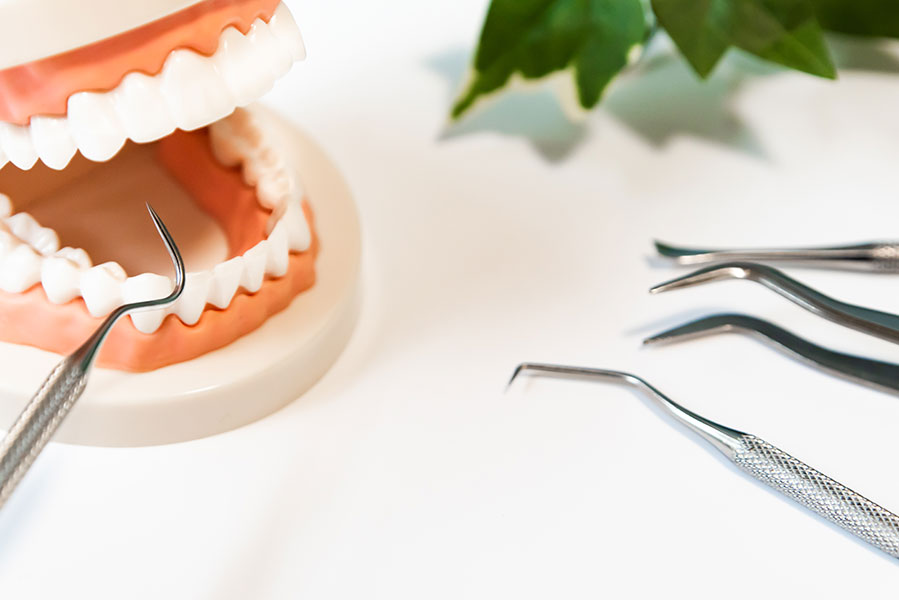Are you worried that you have begun to develop periodontal disease? Did a professional provide you with brochures and pamphlets to read, but you still aren't sure what these conditions mean for yourself and your gums in the future?
If so, you are not alone. Despite the prevalence of periodontal disease, many people are in the dark about this unfortunate disease. Dr. Suzanne Caudry and her dedicated dream-team staff are here to change that.
Over the course of this blog post, we will discuss the causes of periodontal diseases, the warning signs, what it is like to live with it, and lastly, the treatment options available to you. Should any questions arise over the course of your reading, don't hesitate to contact our offices at (416) 928-3444. We are always eager to help the people in our community.
The Ins and Outs of Periodontal Disease
For those who are still uncertain exactly what periodontal disease is, we thought we would devote a bit of time to the basics before getting underway. Periodontal disease (also known as periodontitis) refers to a variety of oral issues, such as:
- Gingivitis
- Aggressive periodontitis
- Chronic periodontitis
Many people are familiar with gingivitis. It is a very mild, and very common, form of gum disease that leads to redness, swelling, and irritation around the teeth and gums (a specific area known as the gingiva). If caught early enough, gingivitis can be treated. In fact, early treatment has the potential to reverse symptoms entirely.
By catching gingivitis early, individuals are spared from living with inflammation and other oral health issues that eventually lead to tooth loss and more serious gum disease.
Think of aggressive and chronic periodontitis as a more advanced form of gingivitis. Those living with periodontitis can expect red or swollen gums, bad breath, sensitive teeth, and a host of other unwelcome symptoms. Gums might recede, and adult teeth may even fall out over time.
Who Is at Risk of Developing Periodontitis?
Any individual that is unable to adequately care for their teeth and gums is at risk of developing periodontitis. That said, there are a variety of factors that may put even the most diligent individual at risk of developing periodontitis. Some of these include:
- Smoking
- Diabetes
- Stress
- Underlying health issues
- Heredity
- Various medication usage
- And more
Don't be alarmed if any of these risk factors apply to you. All it means is that you should be mindful of your teeth and gums. It isn't enough to simply brush and floss in front of the mirror every night. Individuals should also book regular checkups and cleanups with their local dentist. A little bit of professional oversight can go a long way.
Treating Periodontal Disease
Everyone should try to avoid periodontal disease if possible. That said, there are numerous forms of ongoing non-surgical and surgical treatments available to those who live with periodontitis. Some treatments are available through dentists, while more advanced forms of treatment are only available through professionals like Dr. Caudry.
Here is some helpful information about the treatments available to individuals today. This list is comprehensive, but we are confident that more sophisticated modes of treatment will present themselves in the coming years. Thanks to celebrated innovators like Dr. Caudry, the world of periodontics is constantly evolving.
Deep Scaling
We perform scaling procedures for patients on a regular basis. We use special equipment to remove tartar and bacteria not just from the exposed teeth, but also the parts of the tooth covered by the gum. Conventional cleaning methods are nowhere near as comprehensive as this. Deep scaling can keep inflammation and further gum recession at bay.
Root Planing
Root planing refers to the ways periodontists will smooth the surfaces of the roots, eliminating the pockets and bevels that invite the steady accumulation of plaque, tartar, and other bacteria. During the root planing process, the periodontist will also remove any bacteria that they uncover. Keeping the buildup of bacteria under control will keep the disease from progressing to a more severe point.
Antibiotics
Another common non-surgical treatment plan is prescription antibiotics. Topical and oral antibiotics can do a lot to control bacterial infections. From mouth rinses to oral gels, these remedies have the potential to even eliminate infection-causing bacteria if caught early enough.
Those who live with advanced periodontitis may benefit from surgical treatments. We know that many people are wary of surgeries, but rest assured, Dr. Caudry performs every surgery with the patient in mind. Our patient-centered approach ensures nothing short of complete success and total comfort.
Flap Surgery
Flap surgery refers to the process by which your periodontist makes incisions in the gums tissue to boost the success of the scaling and cleaning procedures. Access to the covered root areas makes the cleaning process all the more effective.
Soft Tissue Grafting
Periodontitis can lead to the loss of gum tissue. This can give patients the appearance of a "toothy" smile. What's more, it can leave roots exposed, and if left untreated, the gums will only continue to recede. With no gingiva to protect the roots, they are vulnerable to bacteria. A soft tissue graft can restore the gums, enhance your smile, and restore your oral health.
Bone Grafting
Periodontists perform bone grafts when periodontitis has led to deterioration surrounding the roots of specific teeth. The bone material may be synthetic, donated, or a small fragment of the patient's own bone.
Speak with a Periodontist Now
Do you think it is time to speak with a celebrated periodontist in person or over the phone? If so, you will find no one better suited to serve you than the esteemed Dr. Caudry. Operating at the forefront of her field, Dr. Caudry and her staff are here to answer your questions, address all of your oral health troubles, and more.
All you have to do? Contact our facilities at your convenience. We can be reached at (416) 928-3444.

